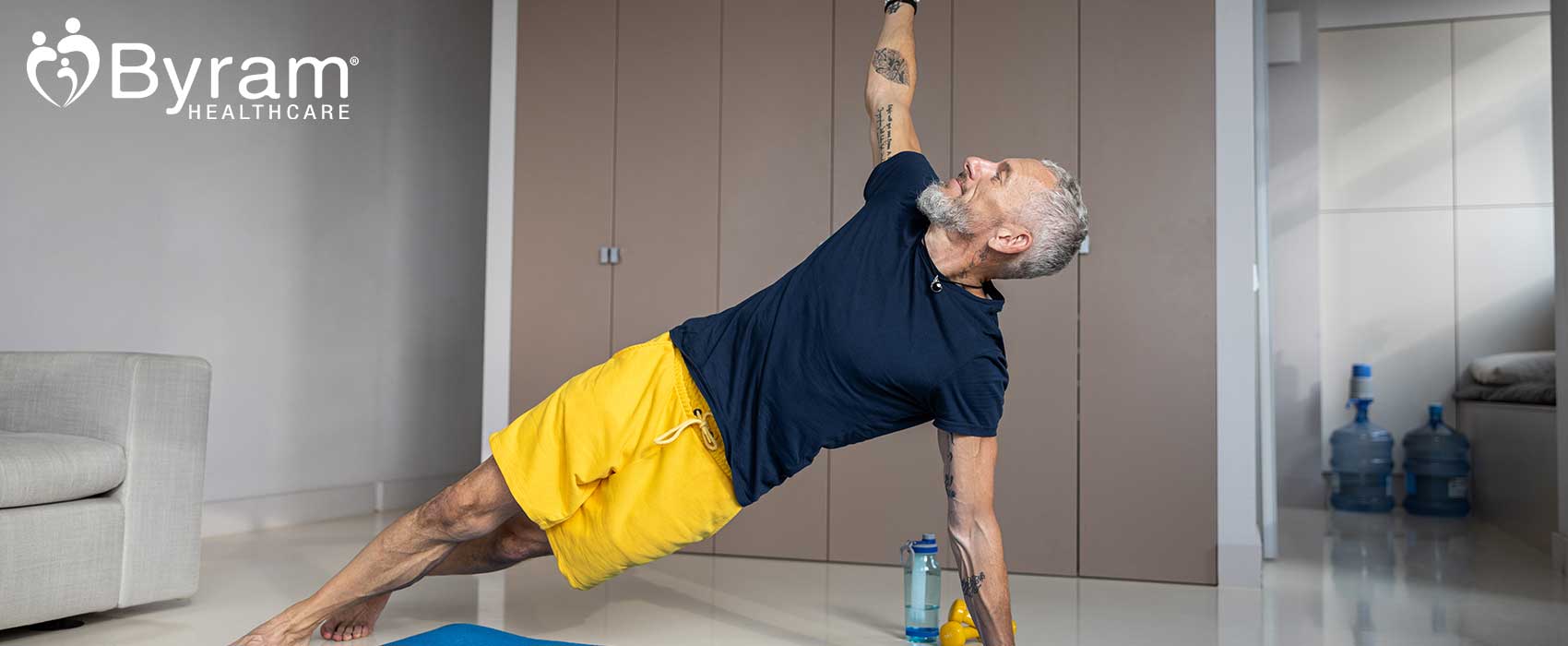
The prostate is a walnut sized organ in males that surrounds the urethra and makes seminal fluid to assist in reproduction. It continues to grow throughout the entirety of a man’s life, beginning in puberty. Although this growth tends to occur more slowly, it can lead to issues like benign prostatic hyperplasia—otherwise known as enlarged prostate. Prostate cancer is also fairly common in men, but when caught early it has close to a 99% cure rate. In both enlarged prostate and prostate cancer, prostate surgery is one of the best treatment plans. However, it can result in some physiological changes, especially in regard to your urinary tract system. To help you better prepare, consider some of the most common questions regarding urinary control after prostate surgery.
Understanding Prostate Surgery
Prostate surgery can be performed for a number of reasons. Most commonly, all or part of the prostate is removed in instances of benign prostatic hyperplasia (BPH) or prostate cancer. The underlying goal of prostate surgery is to either eradicate the cancer or treat enlarged prostate so you’re no longer suffering from complications.
Approaches to Prostate Surgery
There are two different approaches to prostate surgery—radical retropubic or radical perineal. In a radical retropubic prostatectomy, the surgeon will make an incision from the bellybutton to the pubic bone. Then, the prostate is fully removed. In cases where the cancer has spread, a biopsy may be performed on surrounding structures.
In a radical perineal prostatectomy, an incision is made between the rectum and the scrotum to remove the prostate. This is a riskier surgery and usually only performed if other medical conditions complicate the radical retropubic approach. Your doctor will discuss your individual circumstances with you, so you fully understand the risks and prognosis.
What is Urinary Incontinence?
Your urinary tract system filters your blood and creates urine as a waste product. It begins in the kidneys and travels into the bladder, where urine is stored until you need to use the bathroom. Although the filtration process is done automatically, voiding is usually a voluntary muscle movement. When you don’t retain this control, incontinence occurs, which is defined as the unintentional passing of urine. This can happen for several reasons, especially following prostate surgery.
Common Questions Regarding Urinary Control After Prostate Surgery
Is Urinary Incontinence Normal After Prostate Surgery?
A successful prostate surgery will result in the full or partial removal of the prostate without any additional complications or side effects. However, urinary incontinence can and does occur in some situations. Roughly 6% to 8% of men who undergo prostate surgery will experience urinary incontinence or have difficulties with urinary control following the procedure. Luckily, most men who experience this will eventually regain full control of their bladder.
How Severe Will Incontinence Be After Surgery?
The degree of urinary incontinence that you may experience following prostate surgery again depends on your unique circumstances. Some men may notice a few small dribbles of urine escaping throughout the day, while others suffer from full and complete incontinence. This could be due to the size or invasiveness of your prostate or other underlying conditions. However, the severity of urinary incontinence tends to lessen over time and many men regain control of their bladder with time.
Will Urinary Incontinence Last Forever?
Most of the men who experience urinary incontinence after prostate surgery will regain control of their bladder within about a year post procedure. This timeline varies from person to person, however, so it’s important to work with your doctor for personalized treatment plans. There is a small percentage of men who may continue experiencing incontinence after one year, but this doesn’t mean it’s permanent. You may just need to continue with treatment and bladder training exercises for a little longer.
Will Incontinence Occur If I Choose Alternative Modes of Treatment?
Prostate cancer can also be treated with radiation, but doing so without surgery is not as effective and isn’t recommended. Plus, radiation can also cause damage to the surrounding tissues, which may still result in incontinence. Since loss of bladder control is not usually permanent after prostate surgery, it’s best to follow your doctor’s recommendations to treat cancer or enlarged prostate and deal with any potential side effects after.
What Causes Incontinence After Prostate Surgery?
Since the prostate is located in such close proximity to the bladder, it can result in different complications with urinary control. Although modern techniques have helped reduce this risk, surgery can still cause damage to the muscles of the bladder or the nerves that are responsible for bladder control. Prostate surgery may also affect the sphincter or urethra. When damage occurs to any of these structures, urinary incontinence can occur. Since every prostate surgery is different, your doctor will discuss the risks and potential complications with you in advance.
What Changes Should I Expect After Prostate Surgery?
Every individual is different, so it can be difficult to predict who will experience urinary incontinence and who will not. However, your doctor may perform a few tests to measure your likelihood of experiencing urinary control issues later on. This is done by testing the overall functional or structural characteristics of your urinary tract. Although this can help identify certain risk factors, it may not help prevent incontinence from occurring.
What Are the Risk Factors for Urinary Incontinence After Prostate Surgery?
There are a few risk factors that may increase your likelihood of developing incontinence after surgery. Men who require more invasive procedures, such as a radical prostatectomy, tend to have a higher risk of incontinence after surgery. However, your diet, current activity level, and medication use may also increase your risk of incontinence.
Individuals with certain underlying conditions—especially urologic ones—can also have an increased risk of urinary control issues, so talk with your doctor prior to surgery to better understand your situation. There are some things that can be modified prior to surgery to help reduce your risk.
Does Incontinence Go Away on Its Own After Prostate Surgery?
As your body continues to heal, urinary incontinence can go away on its own within about one-year post-op. However, there are treatment options available to help you expedite this process.
Can I Help Improve Incontinence After Surgery?
Yes, there are additional treatment options you can do to help speed up your recovery and reduce your symptoms of incontinence. One way to do this is to incorporate pelvic floor exercises, or kegels, into your daily regimen. These can help strengthen the pelvic floor muscles, which assist in supporting the bladder and muscles in the urinary tract system. This can improve your ability to control your bladder. However, in order to reap the benefits of pelvic floor exercises, you’ll need to correctly target your muscles. They can be performed in any setting, whether you’re sitting down, lying in bed, or standing up. To activate these muscles, use the same force that you would if you were to try to control gas then relax. Avoid clenching your buttocks or stomach to effectively target these muscles. When properly engaged, the skin behind the scrotum should lift up and away during contractions. If you’re not sure whether or not you’re targeting the correct muscles, talk to your doctor about biofeedback.
Where Can I Find Support for Incontinence After Prostate Surgery?
Going through a prostate cancer diagnosis, surgery, and then lingering side effects can take a toll on your mental health. Although urinary incontinence will resolve itself eventually, it can help to have support during the process. There are hundreds of different forums available online to help you through any other FAQ regarding prostate surgery post-op, or you can ask your doctor for local recommendations. There’s no shame in seeking help and sharing your emotions during this process.
Seeing your urologist yearly is an important part of early detection for prostate cancer. Although most men begin these appointments around the age of 40, you should go earlier if you suffer from symptoms of any urologic conditions or have a family history of prostate cancer. If you need any urologic supplies or additional educational resources, visit our educational support page or our product selection guide. Byram Healthcare is proud to offer full-service urologic care with the high-quality urologic supplies that you need. If you need to order any urologic supplies, your packages can be discreetly delivered to your home, at any time of the day.
Byram Healthcare is a member of the National Association for Continence’s Trusted Partners Program, whose mission is to provide quality continence care through education, collaboration and advocacy. We continue to build partnerships in the clinical community to ensure we focus on what’s best for the patient.




